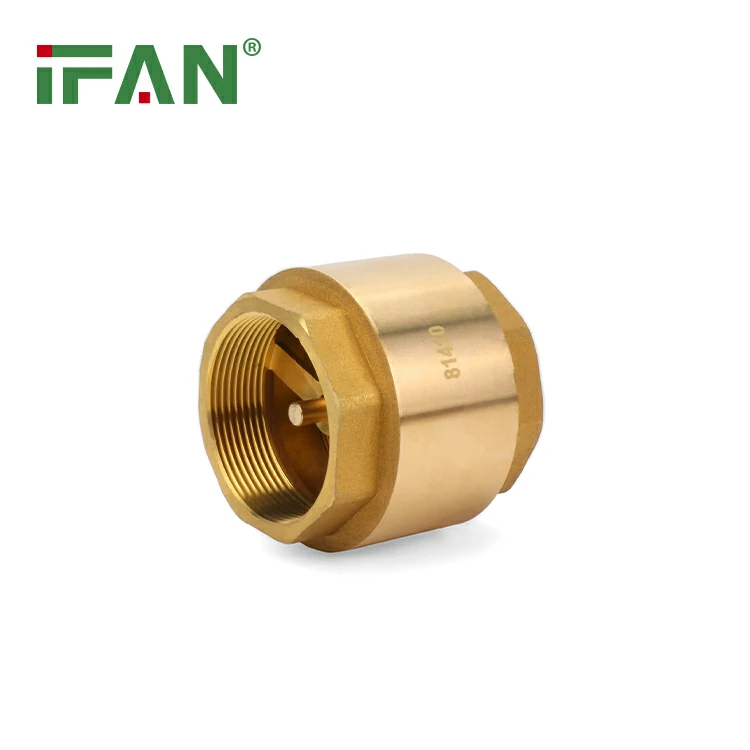Introduction to Brass Check Valves
A brass check valve is a mechanical device designed to control fluid flow. It allows flow in one direction while preventing backflow. Brass is chosen for its durability and resistance to corrosion. This makes it suitable for various applications. Brass check valves are commonly used in plumbing, heating, and industrial systems. Their reliability ensures efficient and safe operation.
Preventing Backflow in Plumbing Systems
One primary use of a brass check valve is to prevent backflow in plumbing systems. Backflow can contaminate clean water supplies. For example, in residential plumbing, it ensures wastewater doesn’t re-enter the clean water line. This is crucial for maintaining hygiene and safety. Brass check valves are often installed in sump pumps and irrigation systems. Their robust construction ensures long-term performance.
Applications in Heating Systems
Brass check valves are essential in heating systems, such as boilers and radiators. They prevent hot water or steam from flowing backward. This maintains system efficiency and prevents damage. For instance, in a central heating system, they ensure consistent heat distribution. Brass’s resistance to high temperatures makes it ideal for these applications. Regular maintenance ensures optimal functionality.
Industrial Uses of Brass Check Valves
In industrial settings, brass check valves are used in pipelines and machinery. They control the flow of liquids and gases, preventing contamination or equipment damage. For example, in chemical processing plants, they ensure chemicals flow in the correct direction. Brass’s corrosion resistance makes it suitable for harsh environments. Proper installation and maintenance are critical for industrial applications.
Role in Water Treatment Systems
Brass check valves play a vital role in water treatment systems. They prevent treated water from mixing with untreated water. This ensures the purity of the water supply. For instance, in reverse osmosis systems, they maintain pressure and flow direction. Brass’s durability ensures it can withstand constant use. Regular inspections help maintain system efficiency.

Use in Compressed Air Systems
Brass check valves are also used in compressed air systems. They prevent air from flowing backward, maintaining system pressure. This is essential for tools and machinery that rely on consistent airflow. For example, in pneumatic systems, they ensure smooth operation. Brass’s strength and resistance to wear make it a reliable choice. Proper installation ensures long-lasting performance.
Advantages of Brass Check Valves
Brass check valves offer several advantages. They are durable, corrosion-resistant, and easy to install. Their versatility makes them suitable for various applications. Brass also has excellent thermal conductivity, making it ideal for heating systems. Regular maintenance ensures they remain effective. These benefits make brass check valves a popular choice across industries.
Conclusion
A brass check valve is a versatile and reliable component in many systems. It prevents backflow, ensuring efficient and safe operation. Its applications range from plumbing to industrial systems. Brass’s durability and resistance to corrosion make it an ideal material. Proper installation and maintenance are essential for optimal performance. Understanding its uses helps in selecting the right valve for specific needs.

